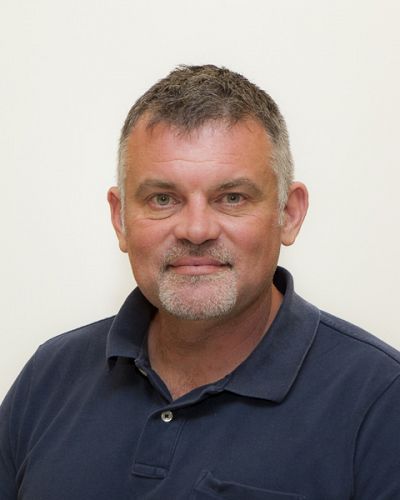
Carl P. Lipo
Professor; Associate Dean for Research and Programs
Background
Carl Lipo currently serves as associate dean for research and programs in Harpur College of Arts and Sciences, professor in the Department of Anthropology and chair of the Sustainable Communities Transdisciplinary Area of Excellence at Binghamton University. His career has spanned leadership roles at both Binghamton and California State University Long Beach, where he co-founded the Institute for Integrated Research on Materials, Environments, and Society (IIRMES).
Over the past two decades, he has pursued projects funded by the National Science Foundation, National Geographic and the Defense POW/MIA Accounting Agency, among others. These efforts have supported work on island sustainability, ceramic technology, climate change impacts and battlefield archaeology. At Binghamton, he has also helped build innovative teaching programs such as the Geospatial Remote Sensing First-year Research Immersion Stream, which provides undergraduates with training in cutting-edge methods of geophysics and UAV mapping.
What excites him the most about anthropology is its ability to connect the past, present and future, and the ways people across time have met challenges with resilience and ingenuity.
Archaeology offers a record of how humans created sustainable lifeways, adapted to scarcity, and forged cultural practices that allowed societies to thrive in difficult environments.
But anthropology is not just about describing the past; it is about developing theoretical frameworks capable of explaining change over time and then building the empirical tools needed to test the veracity of our hypotheses. This is one of the greatest challenges for anthropologists and archaeologists: moving from description to explanation in ways that make anthropology a truly scientific discipline. Lipo find this challenge deeply exciting, and it is a thread that runs through all of his research.
In his work, he has been especially engaged in establishing evolutionary theory as a foundation for archaeology. Evolutionary approaches offer a powerful way to understand cultural transmission, population dynamics and long-term patterns of change. This theoretical perspective connects anthropology with other historical sciences — from evolutionary biology to geology — allowing us to speak a shared scientific language and contribute to a broader understanding of change in complex systems.
By combining evolutionary theory with methods such as remote sensing, computational modeling and experimental archaeology, Lipo aims to show how anthropology can advance as a science: one that explains, predicts and connects human history to the wider processes that shape our world.
Research & Teaching Focus
Lipo’s research centers on island archaeology, cultural evolution, and sustainability, with a long-standing focus on Rapa Nui (Easter Island). Using UAV-based remote sensing, GIS, luminescence dating, and computational modeling, he studies how island communities adapted to environmental stress and developed sustainable practices. A central theme of his work is building and testing theoretical frameworks grounded in evolutionary theory, which allow us to move beyond storytelling and toward scientific explanations of cultural change.
Recent publications underscore these themes:
- “The Walking Moai Hypothesis (Easter Island): Archaeological Evidence, Experimental Validation, and Response to Critics” (2025, Journal of Archaeological Science, in press).
- “Reassessing the Role of Polynesian Rats (Rattus exulans) in Rapa Nui (Easter Island) Deforestation: Faunal Evidence and Ecological Modeling” (2025, Journal of Archaeological Science, in press).
- “Megalithic Statue (Moai) Production on Rapa Nui (Easter Island, Chile)” (2025, PLOS ONE, in press).
- “Island-wide characterization of agricultural production challenges the demographic collapse hypothesis for Rapa Nui (Easter Island)” (2024, Science Advances)
Beyond Polynesia, he also studies the archaeology of North America, including Mississippian mound-building societies and prehistoric ceramics of the Great Basin and California deserts. His collaborations have produced new insights into cultural transmission, ceramic technology and chronological methods, advancing both regional studies and theoretical frameworks in evolutionary archaeology.
Teaching is integral to his research. He regularly offers courses such as Methods in Cultural Evolution, Archaeological Research Strategies, Remote Sensing in Archaeology, and Changing Perspectives on Rapa Nui Prehistory. His students gain not only hands-on experience in field and lab methods but also training in computational modeling, evolutionary theory and interdisciplinary approaches. He views mentorship as an opportunity to involve students directly in the process of science: developing hypotheses, applying empirical methods and testing explanations of cultural change.
For Prospective Graduate Students
Lipo welcomes graduate students who are curious, collaborative and eager to take on the challenge of building anthropology as a science. Whether you are interested in island sustainability, cultural transmission, remote sensing methods or theoretical archaeology, there are opportunities in his lab to develop projects that combine hands-on fieldwork with advanced analytical tools.
His mentorship emphasizes not only technical training in geophysics, UAV-based mapping and computational modeling, but also the development of theoretical thinking and the ability to craft testable explanations of cultural change. If you are excited about using archaeology to answer big questions about human history, resilience and sustainability, he would be delighted to work with you.
Education
- Ph.D., Anthropology – University of Washington (2000)
- M.A., Anthropology – University of Wisconsin, Madison (1989)
- B.S., Anthropology (with Distinction) – University of Wisconsin, Madison (1987)
Research Interests
- Island Archaeology (especially Rapa Nui/Easter Island)
- Cultural Transmission and Evolutionary Archaeology
- Remote Sensing, UAV Photogrammetry, and GIS
- Luminescence Dating and Geophysical Methods
- Climate Change Impacts on Sustainability in Island Environments
- Ceramic Technology and Chronology in North America
Teaching Interests
- Archaeological Laboratory Methods
- Archaeological Remote Sensing
- Introduction to Anthropology
- Humans and the Environment
- Eastern North American Prehistory
More Info
- ORCID: 0000-0003-4391-3590
- Laboratory Website
- Personal Website
- ResearchGate Profile
- Academia Profile
- Nova Documentary